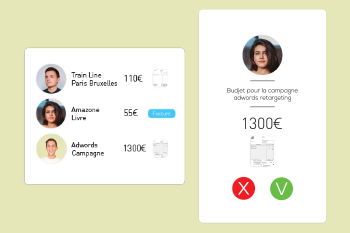
- Si vous recevez un email provenant de anytime-banque ou @anytime-placements, ne répondez pas et ne transmettez aucun document. Contactez le Service Client Anytime !
- Ces faux conseillers vendent du crédit ou vous font croire qu'ils vont vous apporter une aide financière
- Ces faux conseillers vendent des faux produits de placement comme un faux livret d'épargne.
Nous ne vous proposerons jamais d'opérations d'investissement ou de spéculation
Les néobanques à l’image d’Anytime proposent des services bancaires, ce sont des établissements de paiement. Nous fournissons des services de paiement aux personnes physiques et morales. Aucun conseiller Anytime ne sera donc en mesure de vous proposer des produits de découvert, de crédit et de placements.
Si vous recevez de telles propositions, n'hésitez pas à nous les envoyer via notre formulaire de contact dédié.
Anytime renforce ses procédures d'ouverture de compte par visio
Pour la sécurité de nos clients, nous avons décidé de renforcer l'ouverture de votre compte Anytime. Au moment de la demande d'ouverture de compte sur le site https://secure.anyti.me/, pour lutter contre l’usurpation d’identité, nous remplaçons le selfie traditionnel par une interaction vidéo qui vérifie la pièce d'identité et le titulaire du compte. Si des fraudeurs se sont emparés de vos documents d'identité, ces documents seront inutilisables pour ouvrir un compte chez Anytime. Découvrez notre nouveau dispositif de sécurité
Ci-dessous un exemple de messages que vous avez pu recevoir des fraudeurs
Exemple d'un faux site Anytime (appelé site miroir)
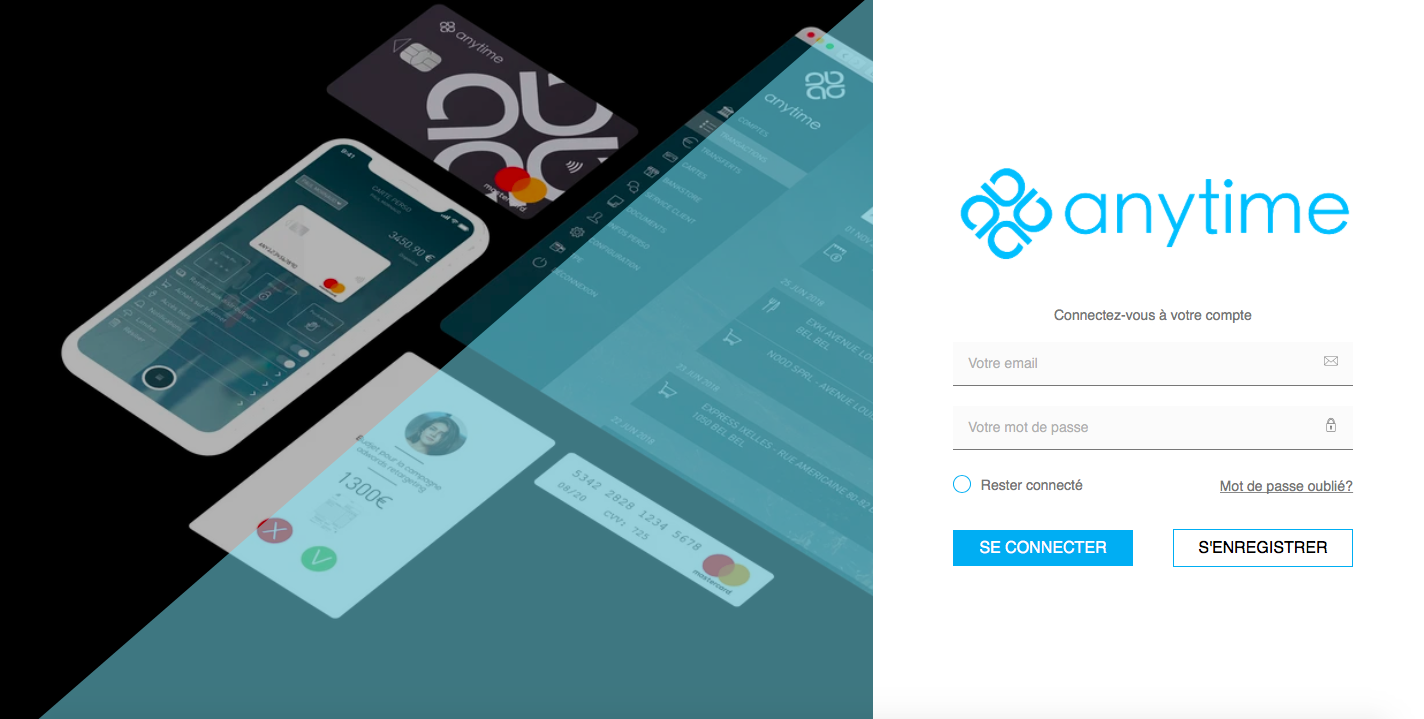
Exemple d'email envoyé par les fraudeurs
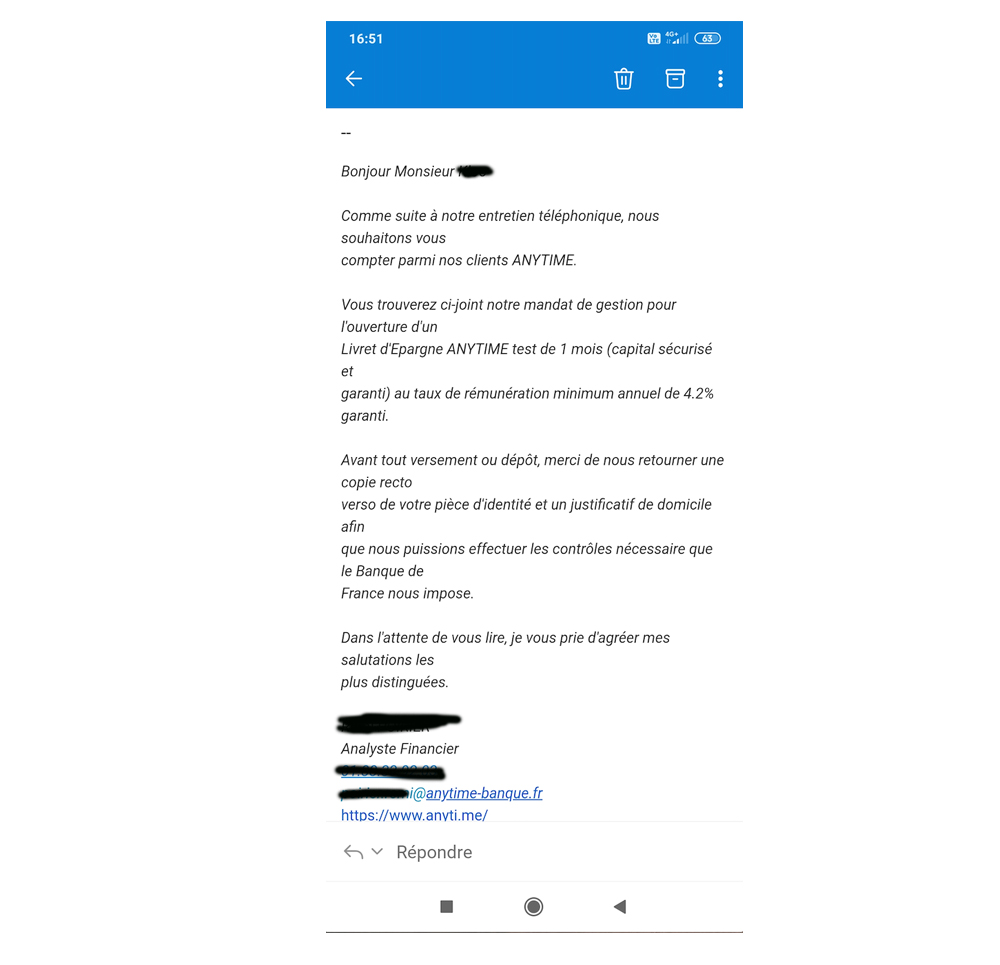
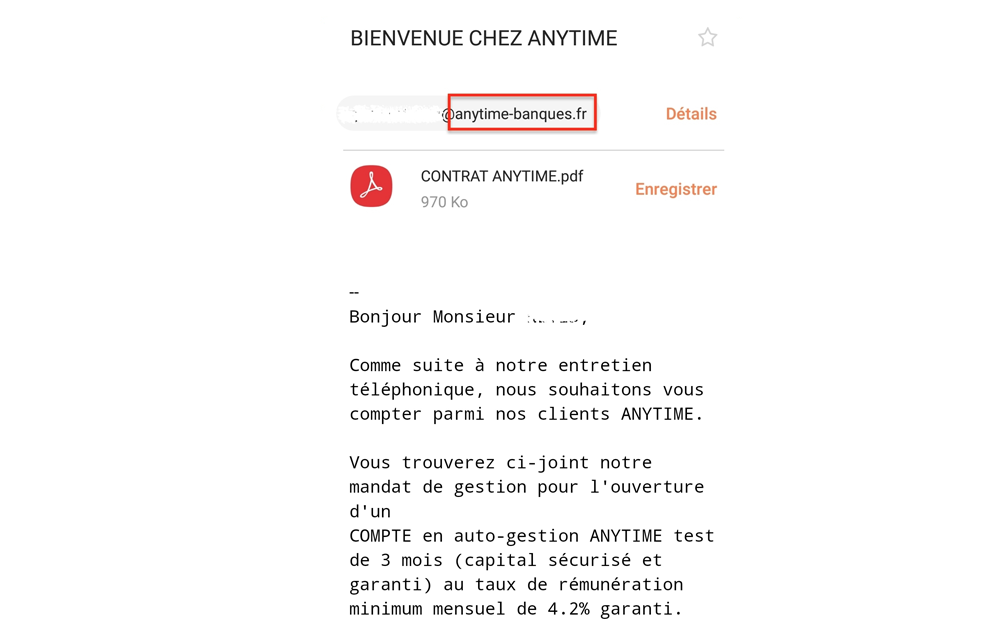
Exemple de faux document PDF
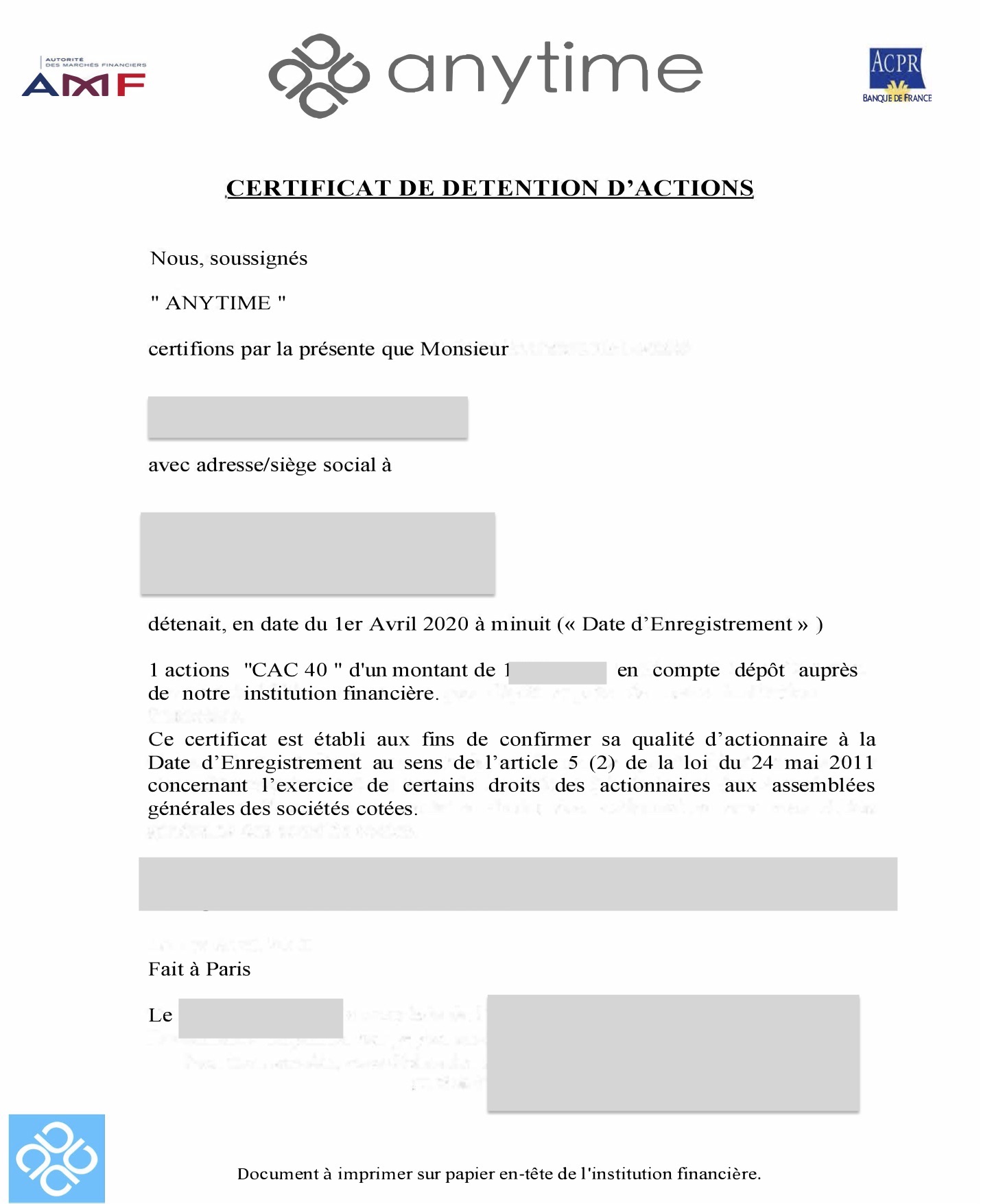
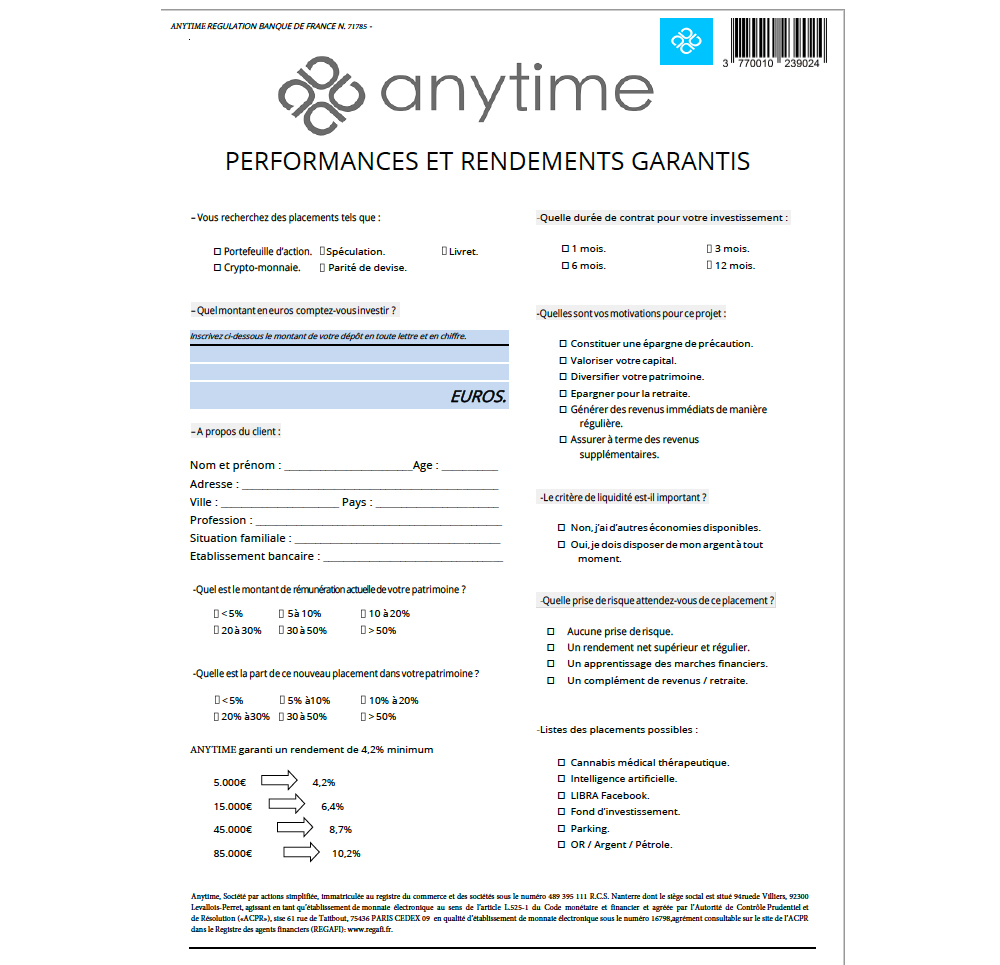
Que devez vous faire si vous avez été en contact avec un fraudeur ou si vous avez envoyé des documents ?
Nous avons mis en place un formulaire dédié pour que vous puissiez nous alerter le plus rapidement possible, si vous pensez être victime d'une fraude.
Comment les fraudeurs vous attaquent ?
Ne pas tombez dans le piège. Avec la crise du Coronavirus, les risques augmentent.
Les pirates et fraudeurs sont prêts à exploiter tous les évènements les plus dramatiques (tsunami, attentats, pandémie, problèmes financiers…) pour vos piéger.
Nous allons tous recevoir des emails malveillants (phishing) qui vont faire appel à nos émotions, notre sens civique ou simplement notre curiosité. Ces emails nous invitent à effectuer une action bien précise dans le but :
- de dérober des informations personnelles
- d'ouvrir ou exécuter un fichier corrompu ou une pièce jointe infectée
- d'envoyer des documents relatifs à son identité
- de se connecter d’urgence avec login et mot de passe sur un faux site qui fait penser à Anytime.
Quels sont les sujets exploités par les hackers ?
- Octroi de crédit,
- Remboursement de TVA, d'impots, d'URSSAF, de RSI, d'ASSEDIC, Sécurité Sociale...
- Fausse procédure informatique pour se connecter à distance à votre ordinateur (télétravail),
- Appel aux dons,
- Conseils sanitaires ou médicaux, vente de matériel médicaux type masque, gel hydroalcoolique, gants et produits de première nécessité
- Injonctions gouvernementales,
- Fakes news, faux sites (cartes, statistiques…,
- Fausses promotions (VOD gratuit, abonnement premium..),
- Contenu humoristique
Ces attaques peuvent également être diffusées via sms (SMSishing) ou des applications mobiles.
Les bonnes pratiques
- Ne cliquez pas sur des liens douteux. Tapez directement l’adresse du site légitime dans votre navigateur web.
- Méfiez-vous des emails provenant d’expéditeurs inconnus. Vérifiez bien l’adresse email complète. Méfiez-vous des alias.
- Ne partagez aucunes informations personnelles (login, mot de passe, carte bleue..) par mail ou sur un site qui vous a été communiqué par mail ou SMS.
- Ne téléchargez pas d’applications (y compris mobile) relatives au Covid-19
Notez que les équipes Anytime ne vous demanderont JAMAIS votre mot de passe, votre numéro de carte ou votre code PIN par mail.
Si vous avez le moindre doute sur une tentative de fraude à votre encontre, alertez immédiatement notre Service Client.
Pour aller plus loin sur ce sujet
Focus sur les menaces d'hameçonnage (ou phishing)
Les pirates informatiques rebondissent systématiquement sur des actualités tragiques pour essayer de piéger leurs victimes. On observe une recrudescence d'emails malveillants. L’épidémie du coronavirus ne fait pas exception. Que ce soit dans votre vie professionnelle ou personnelle, vous pouvez être la cible de nombreuses arnaques : fausses procédures de connexion à distance, appels aux dons, propositions aguicheuses de prêts en tout genre… Comment éviter les pièges du hameçonnage ?
Qu’est-ce que le hameçonnage, ou phishing ?
Le hameçonnage (ou phishing en anglais) est une technique utilisée pour obtenir des renseignements personnels de votre part. Le criminel se fait passer pour un tiers de confiance pour essayer de vous soutirer diverses informations : photocopies de vos documents d’identité, justificatifs de domicile, mots de passe, ou encore votre numéro de carte de crédit.
Comment ça fonctionne ?
Les hackers ont des scénarios bien ficelés pour arriver à leurs fins. Ils vont faire appel à nos émotions, notre sens civique ou simplement notre curiosité. Vous recevez un mail qui vous invite à effectuer une action bien précise dans le but de dérober vos informations personnelles : ouvrir ou exécuter un fichier corrompu ou une pièce jointe infectée, envoyer des documents relatifs à votre identité, vous connecter d’urgence avec votre login et votre mot de passe sur un site…
Imaginons un exemple simple. Vous recevez un mail d’Anytime avec une proposition de prêt exceptionnel suite aux difficultés rencontrées par les entrepreneurs face au Coronavirus. Pour cela, on vous demande de fournir vos documents personnels (pièce d’identité, justificatif de domicile, extrait KBis..) et de verser un acompte sur un RIB. Il s’agit en fait d’un fraudeur qui, en plus de récupérer votre argent, pourra utiliser vos documents pour ouvrir des comptes bancaires à votre nom.
On peut également vous demander de régler un arriéré rapidement, et le mail vous enverra vers un « site miroir », c’est-à-dire un site internet réalisé dans l'optique de vous faire croire que vous vous connectez sur le site internet officiel. Vous renseignez votre login et mot de passe sur le faux site : le criminel pourra ainsi se connecter au site officiel avec vos identifiants pour commettre ses méfaits sans aucuns problèmes.
Quelles mesures chez Anytime ?
Votre sécurité est notre priorité. Nous recherchons toujours des mesures supplémentaires pour vous protéger contre les tentatives d’arnaques.
- Pour lutter contre l’usurpation d’identité, nous remplaçons le selfie traditionnel par un appel en visio avec un agent qui va vérifier la pièce d'identité et le titulaire.
- Authentification forte DSP2 pour vous connecter à votre espace client Anytime (Identification par empreinte digitale, token SMS...)
- Modification de votre numéro de mobile. Un agent Anytime vous rappelle pour vérifier votre identité
- Cartes virtuelles à usage unique. Une carte dédiée à un seul achat, diminuant ainsi les risques de fraude à la carte bancaire
- Possibilité de bloquer les fonctionnalités de votre carte bancaire à tout moment
Les équipes Anytime optimisent chaque jour la sécurité de votre compte bancaire. Mais vous devez également faire preuve de vigilance et de prudence. Suivez les conseils prodigués sur cette page et vous devriez rester à l'abri des arnaques.





